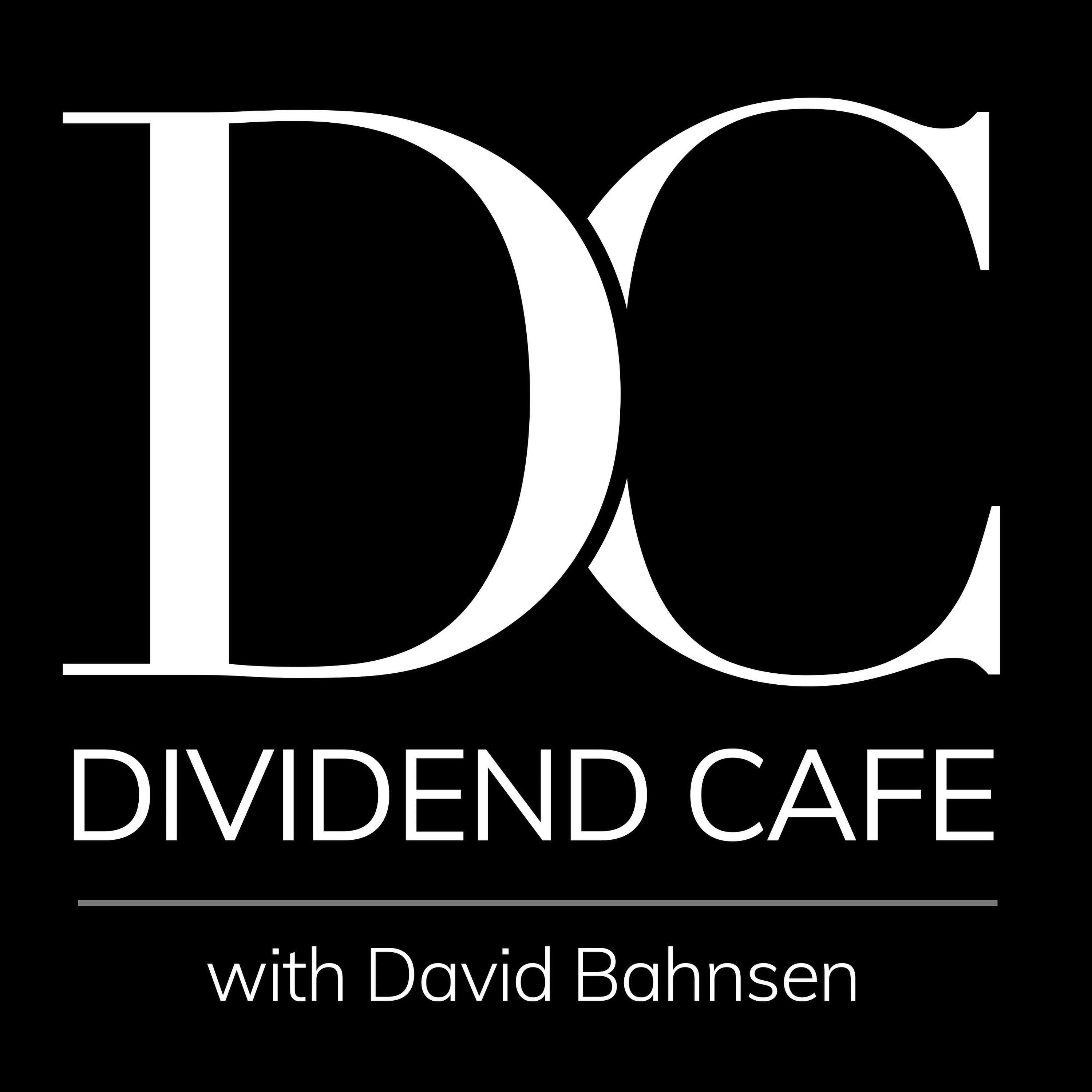Dear Valued Clients and Friends,
So with just over a week to go, there have been more questions than ever about the election and its impact on markets, and while my quadrennial special election issue came out a month ago (and I believe does serve as a pretty comprehensive treatment on implications of the election for investors), additional questions understandably exist. My goal this week has been to compile and address all those questions I received (these are real questions from real people). I hope it scratches those itches.
I feel confident that my answers and perspective this week are, all at once, objectively focused on the task at hand – assessing the potential outcomes for investors of a wide array of potential outcomes in the election. I do not offer [much] by way of political commentary here, mostly because it isn’t the purpose of this communication. From time to time, I get asked if I will ever run for office (and I presume what is behind such a question is either a suspicion that I will or even a complimentary attempt to suggest I should). My answer has always been the same – first, an internal amusement at how little people know me despite my attempts at transparency (I couldn’t last five minutes “working a room” and trying to be friendly and natural in a group of people); but then second to state that “if nominated, I will not run; if elected, I will not serve” (h/t Sherman).
No, my friends, you are stuck with me managing money and talking markets. Some of us have to stick to our calling. And that calling for me is right here, in the Dividend Cafe.
|
Subscribe on |
“Who do you think is going to win?”
I think Gov. Jim Justice of West Virginia is going to be the new Senator in the great state of West Virginia (though polls disagree as to whether or not he will win by 34 points or 38 points). Wait – that is not the race you are talking about? Well, let me explain why it is the one I am talking about.
This is a market/economic commentary, and the final composition of the U.S. Senate changes what matters and doesn’t matter for markets as it pertains to the race you are really talking about (I know, the school superintendent in Sheboygan, Wisconsin). The Presidential race is going to get a lot of attention in the paragraphs that follow here, but if we were going into Presidential results already knowing that the majority balance of the U.S. Senate was about to shift, the various alleged implications of the Presidential race change substantially. Because Jim Justice is sure to win the West Virginia Senate seat, the Republicans go into election night with 50 seats assured. From there, the question is whether or not there will be one victory to make it 51 (most likely is Tim Sheehy vs. incumbent Jon Tester in Montana), two victories to make it 52 (second most likely is Bernie Moreno vs. incumbent Sherrod Brown in Ohio), or three victories (some other possible race, like Pennsylvania where Dave McCormack has closed some of the gap against long-time incumbent, Bob Casey). My view is that the Republicans are virtually assured of 51 seats, have a 50-50 chance now of 52 seats, and are unlikely to reach 53 (but it is in the realm of possibility).
So, this matters in the sense that the Presidential race, which requires some opinion on at least six if not seven states to have a predictive point of view, is a very different deal for investors if one goes into election night believing the Senate balance of power has shifted. It makes the two options either (a) A Republican Senate with a Trump White House or (b) The gridlock of a Republican Senate with a Harris White House. Investors will not see in those two options the same downside risk to financial markets that they might see with a third option of a Democrat-majority Senate with a Harris White House (putting various tax policies and other economic policy ideas on the table). I believe we are looking at A or B, not A, B, or C. Markets seem to agree.
Okay, now to the question. Who is going to win the Presidential race? I have studied every poll known to man for months. I am a paid subscriber to all of the high-quality polling and modeling resources out there. I participate frequently in private conversations with key people inside both candidate’s inner circles. And I am telling you that no one knows how this is going to go. Of course, there are some who are very confident about an outcome, but human nature being what it is, confidence is often far more of an emotional and aspirational trait than it is an intellectual one.
Given the current president’s health and energy status, I believe President Trump was on track to beat President Biden handily. I believe that Vice President Harris gained an advantage in energy and momentum this summer at the same time that President Trump’s actions were undermining the case for his candidacy. I believe that the debate was a net positive event for candidate Harris and not candidate Trump. And yet, there is also no denying that the general momentum in polling and the overall “vibe” appears to have reversed yet again to be modestly in favor of the Trump campaign. However, none of that matters when the election comes down to four or five states, with perhaps one or two counties in each of those states, making the net difference in the electoral college.
I think the polls, the margin of error, the turnout assumptions, the early vote tallies, and whatever else you want to look to – all point to a CLOSE election, and I stand by my belief that it is a 50-50 race. If one candidate ends up winning these battleground states by 4% or more, and the electoral college ends up being 310 votes or more to one candidate versus another, then I was wrong and it was not as close as I currently see it. And that absolutely could happen! But my view is that the country is so divided, with so many voters having so many closely held reasons for not wanting to vote for either candidate, that there is a mystery in how some of these things will break in the end.
Will the winner of Pennsylvania win the election? I certainly think so. Now, if Harris were to win Nevada and North Carolina, lose Pennsylvania, and hold Michigan and Wisconsin, then no matter what happens in Georgia and Arizona, she would have 273 electoral college votes and would be President. But the best thing I can say is that I do not believe someone who wins North Carolina and Nevada both would lose Pennsylvania. I suspect Georgia and Arizona stay with the same candidate, and I expect all three blue wall/Rust Belt states to do, as well (or at least two of the three). The map gets very fuzzy for whoever loses Pennsylvania – not impossible, but fuzzy.
I think the winner will end up with 270-290 electoral votes, not 310+. And sorry, I won’t predict a winner here. The best I can say is I know who would have won if the candidates were different. =)
“Are there trades to make now based on likely outcomes?”
Private prison operators are up +25% in the last few weeks as President Trump’s polling has improved, with speculators believing his possible election to be better for that space than if VP Harris were to win. Bitcoin miners have traded up and down with Trump polling. When Harris has done better in polls some of the companies that would suffer from higher tariffs have gone up. Hedge funds have sought trades here and there in certain names, sectors, or baskets that they think would benefit from one outcome over the other.
Or have they?
Is the trade really around the fundamental opportunity of a given company around an election result, or is it a trade around how one believes someone else will trade? Are investors speculating about the election, or are they speculating about how other speculators are speculating?
Sorry, but this is all madness. Just pure madness.
At a broad level, I do expect a Harris win would be perceived as better for American importers, and I do suspect that a Trump win would be better for companies who are acquisition targets of bigger companies (less DOJ blockage or interference with M&A). But would I bet on such a thing? No, I would not. That latter example, by the way, of the Biden/Harris DOJ and FTC pattern of being antitrust activists is hardly unique to them. President Trump said he wanted to break up big tech, he sued to block the AT&T/Time Warner deal (unfortunately for AT&T investors, he lost), and his candidate for Vice President, JD Vance, said that Linda Khan (Biden’s antitrust regulator de force) is the one member of Team Biden he would like to keep! In other words, there is daylight between those campaigns, but there is also areas of ambiguity. And placing short-term trades around what might happen and not happen invites not one, and not two, but five or six layers of risk and uncertainty. No, thank you.
“If Trump wins, who will his key advisors likely be?”
This is a big question. His first term was somewhat schizophrenic ideologically, as he had traditionalist Reaganite Mike Pence as his Vice President. He had Wall Street technocrat, Steve Mnuchin (Goldman alum), as his Treasury Secretary. He had National Review intellect Kevin Hassett as key economic advisor, along with Bahnsen Group advisor and friend Larry Kudlow. But then he also had protectionist Robert Lighthizer and tariff-loving Pete Navarro in key economic posts. In the end, the influence of supply-siders Art Laffer, Steve Moore, and Larry Kudlow seemed to carry more weight in the administration’s policies than the rhetoric of some of the more economically nationalistic influences did. But would it be the same in a second term? Or would there be a tug-of-war for influence in policy between that camp of Reaganite pro-growth supply-siders and the less conventional natcon types? I strongly suspect the latter would be the case, with a mixed bag of people across staff, cabinet, and policy advisor positions. If President Trump were to win the election, I would know a lot more about what to expect in policy two to three weeks after the election, when personnel starts to be announced.
I did not get a question about what kinds of advisors we would see from Vice President Harris should see prevail, but it is a question many will have. Her campaign team of mostly Wilmington-based Biden alumni was largely by necessity. Would she seek to keep many of the Biden officials from the current administration or find alumni from the Obama and even Clinton administrations? Would she carve out her own people altogether, largely pulling from her own Rolodex of California advisors and confidants? It is a fair question and, candidly, one that will tell me a lot once it starts to play out.
Personnel is policy.
“Do you have an expectation of what the market will do between now and the election? What about right after the election?”
Because we are knee-deep in earnings season right now, I expect earnings announcements and forward guidance to drive markets next week, with the potential for elevated volatility days ahead of election day and possibly for days after. Traders just going to the sidelines is not uncommon while people wait for “dust to settle.” I suspect that much like a typical Fed announcement; there is so much noise to clear before normalcy can re-surface that it just won’t be totally normal for the next week or so. How things trade in the days following the election will depend on the clarity of an outcome and the time it takes to get past uncertainty (i.e., recounts, lawsuits, etc.) and into the known knowns of whatever the next path will be.
“Could you please explain how tariffs could be good for the economy and generate zero or little inflation?”
No.
But I do plan to cover tariffs in next week’s Dividend Cafe at great length.
“With all this political dysfunction, why should I keep my financial assets in the USA at all? And if not here, where?”
The second part of the question is perhaps more important than the first part. Let’s grant for a second that there is some reason to pull one’s financial assets out of the USA (I do not grant that, at all, of course). Where in the world would one put them (note: “Where in the world” here happens to be a rare case of it being a literal phrasing, not a figure of speech). Like, where in the world would be a safer haven for your assets than the USA? You may have heard that the Swiss are not exactly keen on U.S. interjections these days. If the belief is that our system is politically dysfunctional (fair enough), is there some notion that they have it all working great when it comes to electoral politics and cultural harmony in Germany, France, Italy, the UK, China, India, etc.? The issue here is that:
- The political dysfunction and cultural disharmony of the U.S. are not relevant to the stability of your financial asset custody and well-being.
- The U.S. enjoys a mostly market economy system, which is mostly embedded in the rule of law and mostly respective of private property. I have no doubt some could substantiate marginal failures of these standards, but I also have no doubt that the relative cost-benefits analysis favors U.S. domicile of assets.
- There is not a better alternative.
“Do gas prices drop a few months before an election? Does this help the incumbent?”
I went back and looked over about ten election periods and saw no such correlation. Indeed, even the recent drop in gas prices these last few weeks is teeny-tiny and only brings prices back to where they were at the beginning of the year and before that, where they were in January of 2023. If a President has the ability to move gas prices on a dime without offsetting influence from OPEC, or the Middle East’s geopolitics, or economic demand, or Chinese economic strength, etc., it would seem that four years of backroom control would be better than three weeks. Alas, this is above their pay grade.

“If Trump wins do you believe there will be more fracking during the next term? If Harris wins, do you believe there will be less fracking? What will market impact be?”
I actually believe that there would not be a difference in the volume of fracking output. Now, that is not to say that Trump is not more supportive of fracking than Harris because he obviously is, but it is to say that the implications of their respective energy worldviews are not so much pertinent to fracking output at this stage in time. I would see LNG export terminals as a lower-hanging fruit when it comes to policy differentials, but when it comes to oil production, the fact of the matter is that for current drilling, the decisive factor is company capital discipline, not public policy. Now, their policy differences are pertinent to future considerations, to new pipeline approvals, to gas extraction from already-existing wells, and so much more. But no, I do not believe actual oil production from current wells would go up or down in the next four years by nature of who is President (keep in mind, we are currently at an all-time high of 13.5 million barrels per day in the current administration).
All this to say, I see the energy policies of a Trump administration vastly more favorable to the energy needs of the United States (geopolitically and economically), but I do not see that manifested short-term in changes in fracking volume.
“What will this election mean for emerging markets, sovereign debt, commodity prices, etc.?”
I do not suspect that the Presidential victor is going to be a major factor in much of what is driving economic reality for frontier or emerging markets. Rather, I believe U.S. monetary policy is likely to drive those issues you ask about here. In other words, an easing approach from the Federal Reserve – greater monetary loosening – is likely to boost economic conditions in the emerging world. If the dollar were to modestly weaken as the Fed lowers rates, etc., it would likely improve the debt profile of emerging economies and boost commodity prices, a benefit to countries that largely export natural resources. It also enables dollar-denominated debt to be paid back with less of a burden to these debtor nations.
“Will the popular vote winner be the electoral college winner?”
If I were a betting man, I would say that if President Trump wins the electoral college, then no, and if VP Harris wins the electoral college, then yes. So as I said above, about the overall outcome, 50-50.
I should say Nate Cohn of the New York Times has posited a scenario where Trump wins the popular vote but Kamala Harris wins the electoral college (not a prediction; just a scenario). I don’t see it.
“How does the growing national debt impact economic growth?”
It stifles it, impedes it, stunts it, hurts it, and without proper treatment, leaves us facing multi-decade subpar growth. Other than that, not much.
I have written about this a lot. No really, a lot.
“What do you think will be the catalyst for politicians to realize the US debt situation and begin acting upon it?”
I believe no such catalyst exists that does not first involve the PEOPLE realizing the gravity of the debt situation and acting upon it. The politicians respond to the incentives given them by the people, and the people “wanted a King.” There is always the possibility of a politician getting elected by not addressing it and then committing political suicide to address it after their election. But in our complex democracy, I am skeptical even that could work unless 218 Congressmen/women and 51 Senators wanted to join them in the patriotic mission of career suicide.
The debt problem is actually a spending problem. And the spending problem is actually a size of government problem. And the size of government problem is actually a self-government of the people problem. Solve the crisis of responsibility; solve the debt problem. But this is decades of work ahead, and those decades have not yet begun.
Quote of the Week
“Of all tyrannies a tyranny sincerely exercised for the good of its victims may be the most oppressive”
~ C.S. Lewis
* * *
I am jumping on a plane from Chicago to New York, so I have to hit submit. I welcome your feedback, follow-up questions, and notes of disagreement. And I hope you do not mind that there is a zero percent chance I will argue about your political opinions with you, ever. I am a Burkean to the core, and civil discourse is just as much at the center of my philosophy as limited government and fiscal responsibility are. To these ends, I work.
With regards,
David L. Bahnsen
Chief Investment Officer, Managing Partner
The Bahnsen Group
thebahnsengroup.com
This week’s Dividend Cafe features research from S&P, Baird, Barclays, Goldman Sachs, and the IRN research platform of FactSet












